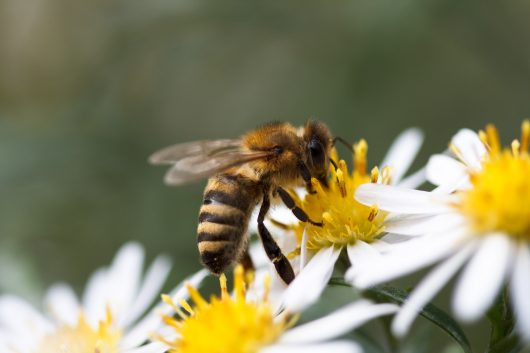Beekeeping: The Buzz About Ending Global Poverty

Underemployment and environmental degradation are two factors that contribute to global poverty. This is true in places like Nigeria, and particularly within the Niger Delta region, where there is widespread poverty. Here, most of the working population relies on agriculture, which is becoming a more difficult field to maintain as farmers receive poor yield due to increasing environmental pollution.
But bees can help in developing nations like these. One large way to combat underemployment in developing nations is to create opportunities for workers to engage in activities that increase earnings. One such activity people can engage in to create opportunities for themselves and for their communities is beekeeping.
Beekeeping offers an effective solution for ending global poverty as it requires little money to establish. Hives and equipment can be made domestically, and bees provide themselves with food. Beekeepers are rewarded with healthier farms and with bonus honey to sell.
Fortunately, beekeepers are not the only beneficiaries of this system. With a rapid global decline in bee populations since the 1990s, bee farming provides a symbiotic opportunity for farmers as well as bees. Beekeepers make money off of the bee’s work, and also provide the bees with a place to live while maintaining the surrounding environment to make sure that the bees have plentiful food and ingredients for their hives.
Honeybees themselves are also hugely beneficial towards the environment. They help to keep plants strong and healthy through pollination. Further, when beekeepers plant trees for their bees to gather nectar from, they are simultaneously helping to prevent soil erosion and landslides.
As pollinators, honeybees help to improve the quality and quantity of fruits on nearby farms. This means that not only are the bees and beekeepers benefiting, but toilers on adjacent farms are also aided. Beekeeping also offers others in the community financial opportunities by way of making and providing beekeeping equipment.
There is a great need to raise awareness about the role of beekeeping ending global poverty. Charities like Bees Abroad in the United Kingdom have helped to prove that bees can help in developing nations. Currently, they are working to offer training and support for beekeepers in developing countries. They are currently overseeing projects in Kenya, Cameroon, Uganda, Nepal, Ghana, Malawi, Tanzania, Zambia, Zimbabwe, Rwanda, Sierra Leone and Nigeria.
– Kayla Provencher
Photo: Flickr
